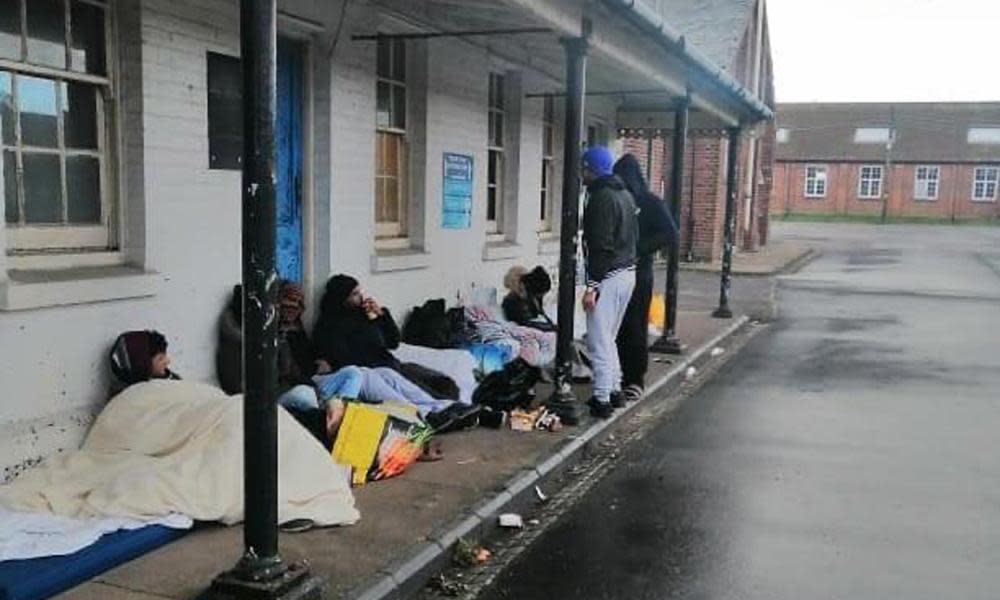Kent refugee site locked down after scores test positive for Covid

A former Kent army barracks being used to house asylum seekers has been locked down – preventing its 400 residents from leaving – after scores of people tested positive for coronavirus.
The private contractors who manage the site at Napier barracks near Folkestone on behalf of the Home Office have advised its residents the entire camp has been placed into isolation, with police officers enforcing the move.
Asylum seekers on the site said they had been keeping a tally of the number of positive cases of coronavirus and claimed about 100 had been returned. The Home Office would not comment on the numbers.
The outbreak follows repeated warnings from humanitarian organisations and healthcare professionals over the significant risks posed by Covid-19 at the site, which has been dogged by allegations of overcrowding and poor conditions.
Kent has been one of the worst-hit areas of the country and is where the new, more transmissible variant of Covid-19 was first detected. Folkestone and Hythe, where the site is located, has a rate of about 572 cases per 100,000, above the average for England.
Clare Moseley, founder of the charity Care4Calais, whose volunteers have been helping men inside Napier barracks, said: “Under fulllock down our volunteers can no longer go in to support and care for the residents and we are deeply concerned for their wellbeing.
“Many questions have been raised over the suitability of this type of accommodation, particularly under Covid, and the severity of this outbreak appears to validate those concerns.
“The Home Office has a responsibility to house people fleeing wars, torture and persecution in a safe environment. After all they have been through, the one thing they desperately need is to feel safe.”
Watch: 'Saving lives is an act of worship’ - leading scholar urges Muslims to have COVID vaccine
The barracks is not a detention centre but “initial accommodation”, purportedly intended to hold men for a short period time as they await a decision on their claims for asylum before they are moved on. Before the recent lockdown, the men were free to come and go from the site to access services in the community.
A letter sent to residents from Clearsprings, the private firm that manages the site, states any person who tests positive will be isolated from those who test negative but concerns have been raised this is not happening.
The residents sleep in blocks that hold as many as 28 men and individual blocks have previously been isolated to prevent outbreaks. But sources have told the Guardian some of the infected men were seen dining in the communal canteen on the night they received the positive test and have said the men are receiving mixed messages from the managers of the site.
In a recording, an official can be heard telling residents nothing can be done to force the men to self-isolate and prevent them from roaming the camp.
They are heard saying: “This is one big house … so they can roam around their house … we can’t stop them.
“We advised them they have to stay in their rooms for isolation, for their own health and everyone else’s health. If they still choose to come out that’s up to them.”
Related: World leaders urged to make Covid vaccine available to millions of refugees
The letter to residents states mass testing is soon to be introduced on site, but does not specify when.
The minister for immigration compliance, Chris Philp, said: “Despite our best efforts a number of those accommodated at the site have tested positive for coronavirus and are self-isolating.
“It is incredibly disappointing that prior to this a number of individuals refused tests and have been either refusing to self-isolate or follow social distancing rules, despite repeated requests to do so and these being national guidelines to protect the NHS and save lives.
“These individuals could face enforcement action and are not only risking their own health but the health of staff looking after them and the communities who are accommodating them.”
Watch: What is known about the Brazilian coronavirus variant?


